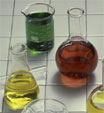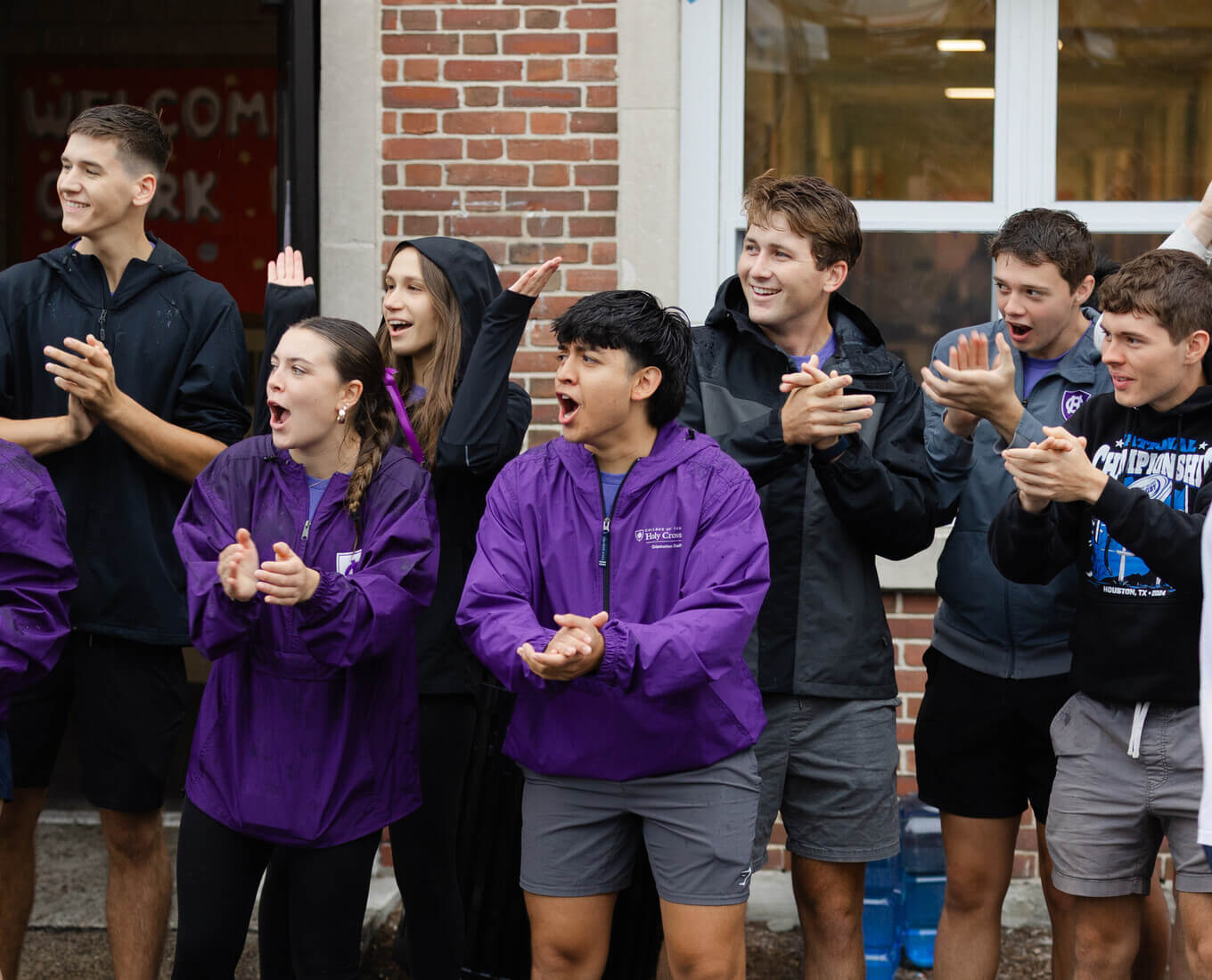 For the third year in a row, a Holy Cross professor ran a science training program designed to strengthen the skills of 20 Worcester Public School teachers in presenting contemporary scientific topics. The workshops, incorporating Holy Cross’ discovery-based approach of teaching science, were made possible by a grant from the Massachusetts Board of Higher Education.
THIS YEAR’S TOPIC The three-week workshop, which ran from June 25 through July 12, allowed teachers to learn more about the biochemistry related to human health and disease. Rob Bellin, assistant professor of biology explained: “When planning this year’s summer science workshop we felt that biochemistry would be a good area to focus on because it covers topics in basic biology and chemistry in the context of human health, which students and teachers generally find interesting. No matter the age of the student, there is some aspect of human health that they can learn more about, and biochemistry helps describe the molecular science behind human health.”
SUMMER READING During the first half of the course, Bellin talked about the basics of biochemistry. Later, the class read two books related to aspects of human health and disease: Why We Get Sick (Vintage, 1996) by Randolph Nesse and George Williams, about how evolutionary adaptation has affected and/or created aspects of human health and disease; and One Renegade Cell (Basic Books, 1999) by Robert Weinberg, on developing an understanding of the molecular basis of cancer.
For the third year in a row, a Holy Cross professor ran a science training program designed to strengthen the skills of 20 Worcester Public School teachers in presenting contemporary scientific topics. The workshops, incorporating Holy Cross’ discovery-based approach of teaching science, were made possible by a grant from the Massachusetts Board of Higher Education.
THIS YEAR’S TOPIC The three-week workshop, which ran from June 25 through July 12, allowed teachers to learn more about the biochemistry related to human health and disease. Rob Bellin, assistant professor of biology explained: “When planning this year’s summer science workshop we felt that biochemistry would be a good area to focus on because it covers topics in basic biology and chemistry in the context of human health, which students and teachers generally find interesting. No matter the age of the student, there is some aspect of human health that they can learn more about, and biochemistry helps describe the molecular science behind human health.”
SUMMER READING During the first half of the course, Bellin talked about the basics of biochemistry. Later, the class read two books related to aspects of human health and disease: Why We Get Sick (Vintage, 1996) by Randolph Nesse and George Williams, about how evolutionary adaptation has affected and/or created aspects of human health and disease; and One Renegade Cell (Basic Books, 1999) by Robert Weinberg, on developing an understanding of the molecular basis of cancer.
SUMMER TOYS Over the three weeks, the group engaged in lab work, using glassware, micropipettes, centrifuges, DNA and protein electrophoresis equipment and spectrophotometers. On the last day, Bellin led the teachers through a demonstration of mammalian cell culture in his research lab and on the $220,000 laser scanning confocal microscope that the College obtained last year with a grant from the National Science Foundation.
NUCLEAR REACTION “I was interested in teaching teachers because it seems to be during high school, or earlier, that students decide if they like science,” says Bellin. “I hoped that by working with the teachers in the course I could provide them with ideas and information that may help them to inspire more students to pursue further education and careers in science.”
HISTORY John Axelson, professor of psychology, ran last year’s workshop, “The Biological Basis of Behavior,” where he covered the structure and function of the nervous system. In 2005, Matthew Koss, assistant professor of physics, offered a workshop on physics and space science titled “Microgravity.”
Related Information:
• Read about last year’s science workshop
• Integrated Science Complex
Holy Cross professor led workshop on biochemistry for Worcester school teachers
Stimulating Minds
Read Time
2 Minutes
